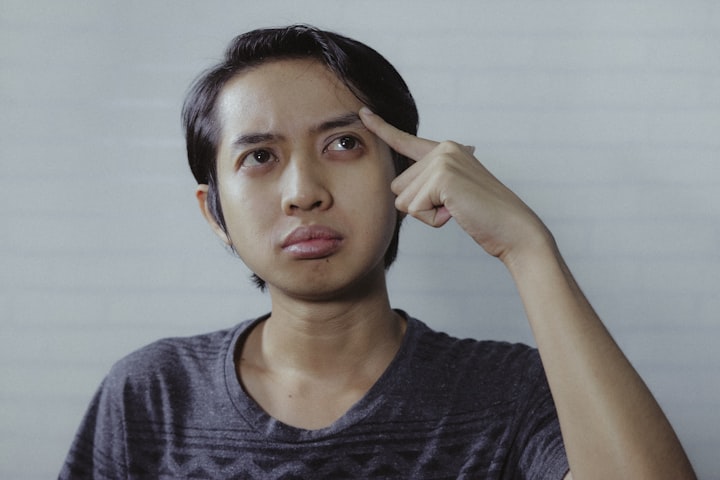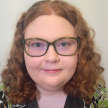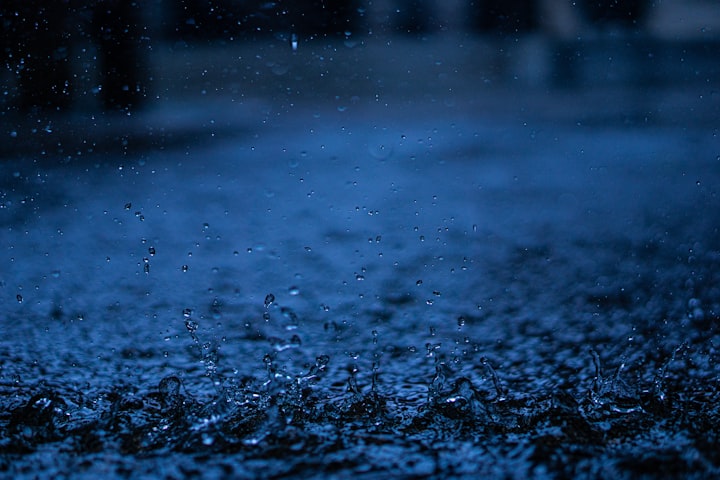Why People Are Mad About "Hogwarts Legacy"
A summary for the curious outsider

In this piece I'm going to touch on the topics of transphobia, racism and racial bias, and antisemitism.
Hello! Do you want to play "Hogwarts Legacy" or know someone who does? Did you see some headlines about boycotting it? Is this the first you're hearing of it? Cool. One more question, and it's an important one: Are you here because you genuinely want to understand perspectives that may clash with your own? I'm not trying to rage-bait here; if you're here to get mad at people like me, feel free to click away. No hard feelings.
Now that it's just us good scouts:
What Is "Hogwarts Legacy"?
"Hogwarts Legacy" is a new action role-playing video game where you get to be a Hogwarts student in the Harry Potter world. It's been in the works for a while, and it's the kind of thing us young Potterheads wanted long before the open-world video game genre had really established itself. The video games that released alongside the books and films were about playing the stories we already knew as characters we already loved. They were pretty cool, but very linear and the quality was all over the board. We wanted to insert ourselves into our fantasy world and explore.
And now we can! The highly anticipated "Hogwarts Legacy" releases this week.
So, What's the Problem?
There are two major categories of "problem" at play here. One category has to do with the author, J.K. Rowling, some things she's said, and some things she's written. The other category has to do with the game, its content, and the ethics of consuming Harry Potter media in 2023.
Let's start with the elephant in the room: Rowling is a TERF.
TERF is an acronym for "trans-exclusionary radical feminist". Woof, that's a mouthful. You probably have some idea what feminism is already. Whatever you're picturing when I say "feminism" is one flavor in an entire ice cream case of ideologies. There are flavors of feminism that have no place for men in their movement. Many feminist movements leave out people of color and push an agenda that benefits some women more than others. TERFs typically believe that trans women are not, and can never be, "real" women. They often assert that the existence of trans people is harmful to the plight of cisgender women.
Calling Rowling a TERF is not an insult. It's a fact. She has doubled down on her anti-trans rhetoric time and time again, and she's clearly proud of her stance. I'm not going to sit here and try to change anyone's mind on the issues of trans and women's rights. We're here to learn, remember? Many young readers saw the Harry Potter franchise as a world where all outsiders could fit in. It's a world where characters of all backgrounds fight a war against intolerance, pureblood supremacy, and (basically) Wizard Hitler. Now we're adults, and the realization that the author behind it all champions intolerance against ANY one group in the real world where we all live... that cuts deep.
But the Books Are Okay, Right?
When I read Harry Potter as a kid, it was easy for me to see myself in the story. It never felt like anything was missing. I had book smarts like Hermione, red hair like Ron, and big "main character syndrome" energy like Harry. As a young adult in the 2010s I found that the Internet expanded my access to a variety voices and perspectives. I found people who liked the things I liked but experienced them completely differently. Some of those people had felt something missing in Harry Potter.
One example that still floats around the front of my mind is the character, Cho Chang. Cho is a young witch of Chinese descent in the books, but it turns out her name is Korean, and both of those names are surnames. I might never have given it a second thought. I didn't know many Asian people growing up and a name like "Cho Chang" sounded "Chinese enough" to me, as it likely did to Rowling when she wrote it. But to children who knew those names and shared those histories, it was blatantly insulting. With a little added context it's easy to hear the resemblance to the (deeply offensive) "ching chong" used by white people to stereotype Asian languages.
I recently watched an insightful video by YouTuber, Princess Weekes, titled "How Blaise Zabini Changed Slytherin & Exposed Fandom". It gets a little nerdy and covers the kind of fandom drama I would have engaged in at 20 but cringe at now that I'm 30. Her focus is on the character, Blaise Zabini, a boy sorted into Slytherin house, the faction coded as the "bad guys" while the stakes are still hovering around a middle-school level. Blaise wasn't given much of a physical description in the book. When the movies cast a Black actor for the role, well, people had opinions.
There's a wider discussion of race in Harry Potter that ties into this story. Princess Weekes mentions in the video that all of the canonically Black characters in the books are described using stereotypes. I don't mean like the big, clearly offensive kind of stereotypes. More like descriptions of hair, skin tone and clothing that communicate very clearly to a white reader that the character is Black. I had one of those "oh, duh," moments where I realized stuff that was obvious to readers of color. In this body of work, diversity is only relevant as spectacle.
What About the Game?
I'm getting there! It's time to talk about the goblins.
In the wizarding world the goblins run the bank. Harry first encounters them in his first trip to Gringotts to discover the fortune he inherited from his parents. The goblins are small, wizened humanoids with long fingers, pointy ears and hooked noses. The magics they use to protect the bank are closely guarded secrets. They communicate in a language called Gobbledegook. As Jon Stewart reminded us in 2022, these are features of antisemitic caricatures that are at least a hundred years old.
Did Rowling do any of this on purpose? Probably not. A lot of the tropes she utilized are much older than Harry Potter and so present in the culture she comes from that they weren't given a second thought in the creative process. That's the thing though, it lacks thought. It lacks research. It lacks input from the people whose cultures she wrote about. This is unconscious bias.
Back to the goblins: in "Hogwarts Legacy" the goblins are staging a rebellion and the player gets to help stop it. Somewhere in the supplemental media that has released in the years since the end of the main series, it has been established that "goblin rebellions" were a thing that happened from time to time in wizarding history. What did the goblins rebel against? (Hang on a sec, let me Google it.)
The Goblin Rebellions were a series of rebellions in which the goblin population of the wizarding world revolted against discrimination and prejudice toward their kind by wizards and witches. They were most prevalent during the seventeenth and eighteenth centuries, but even in modern times, there were subversive goblin groups working in secret against the British Ministry of Magic, according to the Daily Prophet. The historical rebellions had been described as "bloody and vicious".
Oh.
People are taking issue with the game because a marginalized group is fighting for equality and they're the bad guys. That marginalized group draws on antisemitic stereotypes. This is a franchise that started out with villains who were essentially magic Nazis, so some of the WWII parallels are already fresh in our minds. I saw someone on Facebook say it best, "I've seen a few people comparing the plot to the Warsaw ghetto uprising and, like, if that comparison is even POSSIBLE maybe you should reevaluate your plot....."
(Side note: In response to the criticism of Rowling's anti-trans sentiments, "Hogwarts Legacy" now includes the franchise's first trans character. Their name is Sirona Ryan. The name and character are not being received well.)
The Game Looks Fun Though...!
I totally understand the appeal here. It's a game we've wanted for a very long time from a story that meant so much to so many people. Some people don't want to let Rowling's politics spoil their fun. Also, a lot of people worked really hard to make this game happen and it sucks to think of that work going unrecognized. There are some people that argue it would be ethical to pirate the game so they could experience it without giving the author the sales. Maybe. I'm not trying to be the final word on this.
All I can ask is that you make a thoughtful decision. I have a suggestion for parents whose children are going to play "Hogwarts Legacy". Watch them play (or watch a streamer play, if your kids won't let you hang out) so you can see the same story they're seeing. Ask them what they think about the plot developments and the characters (not just the iffy ones). Share what you think about them. Have a deeper conversation about the issues if you think they'll be receptive. If not, it's okay to stick to honest opinions. The goal here isn't to be "right", but to think critically.
This isn't a comprehensive overview by a long shot. There are years of analysis of the social implications of Harry Potter by people way, way more qualified than I to speak on it. But I hope this has shed some light on some of the buzz surrounding "Hogwarts Legacy". Drop me a comment if you're so inclined!
(And if you're one of the haters I took a swing at in the intro and you stuck around out of pure spite to prove you have thick skin: that's actually pretty rad and I sincerely thank you for your time and attention.)
Want to learn about another game you should think hard about before buying? Check out this video by Harenko about the sketchy Russian propaganda ties to "Atomic Heart"!
About the Creator
Rebekah Conard
31, She/Her, a big bi nerd
How do I write a bio that doesn't look like a dating profile? Anyway, my cat is my daughter, I crochet and cross stitch, and I can't ride a bike. Come take a peek in my brain-space, please and thanks.
Reader insights
Nice work
Very well written. Keep up the good work!
Top insights
Expert insights and opinions
Arguments were carefully researched and presented
Eye opening
Niche topic & fresh perspectives
On-point and relevant
Writing reflected the title & theme






Comments
There are no comments for this story
Be the first to respond and start the conversation.